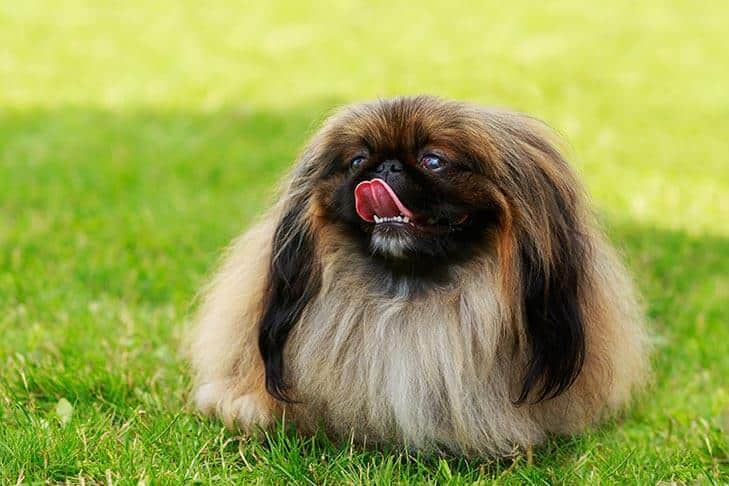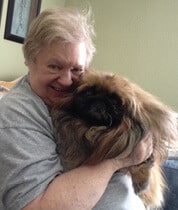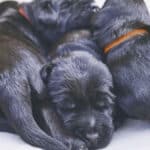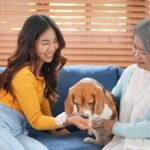Interview with a Toy Group Judge Mrs. Carol Kniebusch Noe
Mrs. Carol Kniebusch Noe: Thank you for inviting me to talk about judging Toy Dogs… one of my favorite things to talk about. I’m a flute performer and grew up in Woodstock, Illinois. I received a Bachelor of Music degree from Illinois Wesleyan University and a Masters in Music from Indiana University, along with additional graduate work. My first position was teaching at the University of British Columbia and performing in the Vancouver Symphony. I then moved to Maryland and performed in the Baltimore Symphony, and I eventually came to James Madison University where I taught for several years. I began judging dog shows in 1998 and I’m approved for the Toy and Non-Sporting Groups.
Where do I live? How many years in dogs? How many years as a judge?
Mrs. Carol Kniebusch Noe: I live near Harrisonburg, Virginia, where I taught in the School of Music at James Madison University. I live in the Shenandoah Valley near the Blue Ridge Mountains.
What is my original breed? What is/was my kennel name?
Mrs. Carol Kniebusch Noe: I’ve bred, raised, and shown Pekingese on a small scale since the early 1970s under the Shenblu prefix. Since I didn’t, and couldn’t, sell my dogs, I usually only bred a litter when I wanted something to show. Needless to say, I loved them all so much that I couldn’t part with them.
Can I list a few of the notable dogs I’ve bred? Any performance or parent club titles?
Mrs. Carol Kniebusch Noe: A dog from one of my early litters, Ch. Tully Ho, was ranked in the Top 10 Pekingese when he was shown. In my early days in the breed, I had more weekends available to attend shows. But as my music career became more active, I was involved in concerts on weekends when dog shows were held.
Have I judged any Toy Breed Specialties?
Mrs. Carol Kniebusch Noe: One of my first judging assignments was judging Sweepstakes for The Pekingese Club of America in New York, and then I judged the National Specialty in Orlando in 1998. I now judge the Toy Breeds and Group, along with Non-Sporting Breeds and Group, and I have judged in several states along with China, Korea, France, England, and Scotland.
Can I offer any advice to exhibitors regarding the presentation of these “table” breeds?
Mrs. Carol Kniebusch Noe: A few years ago, I helped write and edit “The Pekingese Study Guide” for The Pekingese Club of America, where the standard was explained along with pictures demonstrating various points. Under “General Appearance,” this statement summarizes the breed well: “The Pekingese is a well-balanced compact dog of Chinese origin with heavy front and lighter hindquarters. Its temperament is one of directness, independence and individuality. Its image is lionlike, implying courage, dignity and self-esteem rather than daintiness or delicacy.”
Toy Breeds can require special care. Do I have any advice to offer breeders, exhibitors, and judges?
Mrs. Carol Kniebusch Noe: It’s always important to evaluate the Pekingese in a positive way, conforming to the standard, rather than in a negative way, searching for particular faults. The dog should be returned to the table if further structural examination is required—you should never bend over a Pekingese on the ground or ask the exhibitor to lift their Pekingese high so that their head is level with yours—this distorts the dog’s features and expression. Nigel Aubrey Jones often said, “The Pekingese head is the stamp of the breed.” Rose Marie Katz stated, “The Pekingese dog should be judged as a whole—it must present a picture of balance and type. It must be evaluated for its good points rather than torn apart for its faults. In evaluating a Pekingese, one must keep in mind that it is a Toy Dog of great substance and character for its small size.”
Just for laughs, do I have a funny story that I can share about my experiences judging the Toy Group?
Mrs. Carol Kniebusch Noe: I was asked to share a story about a special experience in the ring… Several years ago, I was invited to judge a “sleeve dog” specialty in England. A sleeve dog is a Pekingese under six pounds—the term came from the custom of carrying them in the large sleeves of Chinese robes. Needless to say, this was an honor along with being so interesting to see so many “sleeves” in the ring. When the judging was finished and I was packing up, I noticed the exhibitors continued to gather and groom their dogs. Then the steward came to me and told me I had one more class to judge… I had to pick the exhibit that I would most like to take home! Needless to say, this was difficult as they were all so special and adorable. As I went around the ring, I stopped by the Brace Class and said, “I’ll choose the brace because I would have two instead of one!!” Everyone clapped and liked my decision.









